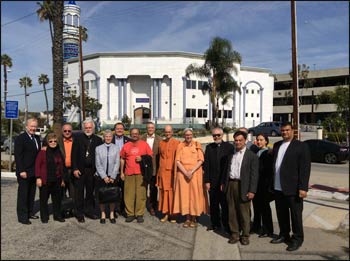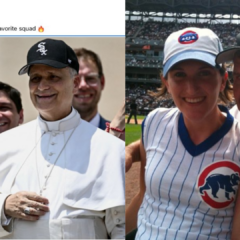The Interfaith Observer wrote about the beginning of the Future 50, a collaboration between Interreligious Council of Southern California (IRC) and the USC Center for Religion and Civic Culture. The initiative came out of early conversations in which the two organizations found common concerns:
During that early conversation, Brie Loskota, managing director of CRCC, was interested in discussing what the Interreligious Council has learned in 45 years, what they want to pass on, and what IRC will look like going forward. The primary learning is that religious communities and leadership are undergoing radical change. As Loskota observes, “People do not relate to their denominations or religious structures as they used to, and interreligiousity has been much more infused in the current generation as a social norm than when the IRC was first started.”
That day they also discussed the importance of learning from the work being done now by the younger generations of faith-inspired leaders in Los Angeles.
Hence the Future50 was created, an initiative forged by the CRCC, in partnership with IRC, seeking to uncover, highlight, and provide support for the rising generation of leaders, inspired by their faith, who are committed to IRC’s core values.
…
A core goal is that members of the cohort develop meaningful relationships and collaborate with each other as well as with IRC trustees.
“Brie wisely said that civil discourse is something best modeled and lived out rather then prescribed, and it was her brainstorm that led to the genesis of the Future50 initiative,” said Bob Williams, IRC vice president, representing the Episcopal Diocese of Los Angeles. “The IRC sees this initiative as an exchange of gifts, where Council members are learning from the Future50. And it is our hope that Future50 members will find something of value to learn from current IRC members, most of whom are middle age.” Regardless of the generational differences and varying religious practices, there is a common goal across the board: a yearning and striving for a better world, however that plays out differently from group to group.
“In Future50, the majority of the leaders are working in spheres where religion and the world intersect that is not congregational. They are finding other ways to integrate their religious, political, and social lives into something they find meaningful,” Brie Loskota says. This sort of dynamism and flow can create a sense of wholeness, rather than compartmentalization, which often happens within congregations and denominations. With this being said, there is also the importance of having respect for what has come before us.”
Click here to read the full article.
To find out more about the Future 50, please read our report about the project.







